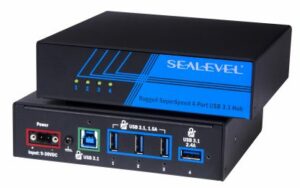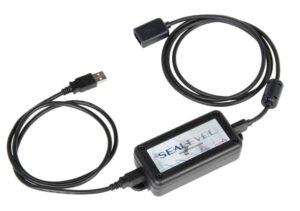SuperSpeed Connectivity
USB hubs are devices that allow connection of multiple USB devices, thus extending the connectivity of a host device such as a PC or laptop. They may provide compatibility with USB 1, USB 2, or USB 3, the latter of which is also referred to as SuperSpeed USB.
Powered & Unpowered
USB hubs may be powered or unpowered. Unpowered USB hubs draw power from the host device, whereas powered hubs have an AC adapter and draw power from the mains supply. Unpowered hubs may not be able to support high-voltage or high-current devices, or large numbers of devices, as they are limited by what the host device can provide.
USB Hubs for Drones & Unmanned Systems
USB hubs may be used to charge batteries and controllers for UAVs (unmanned aerial vehicles), drones and robotic vehicles. They may also be used to provide connectivity with devices and systems such as flight controllers, sensors and onboard storage, allowing users to update firmware, debug hardware or retrieve stored data.
Rugged & Industrial USB Hubs
Rugged and industrial-grade USB hubs for harsh environments may be constructed with a metal enclosure and feature enhanced ESD (electrostatic discharge) protection. Military-grade USB hubs may be designed with ingress protection against liquids, dust and sand, and may feature environmental protection and EMI (electromagnetic interference) compliance with military standards.
USB Isolators
USB isolators are devices that protect sensitive devices against electrical noise and power surges, which can cause data loss or damage to the device. They may be standalone devices that fit between the host PC and the USB device, or may be built into USB hubs. Protection capabilities may include over-voltage, over-current, short circuit, over-temperature, and reverse current.




















